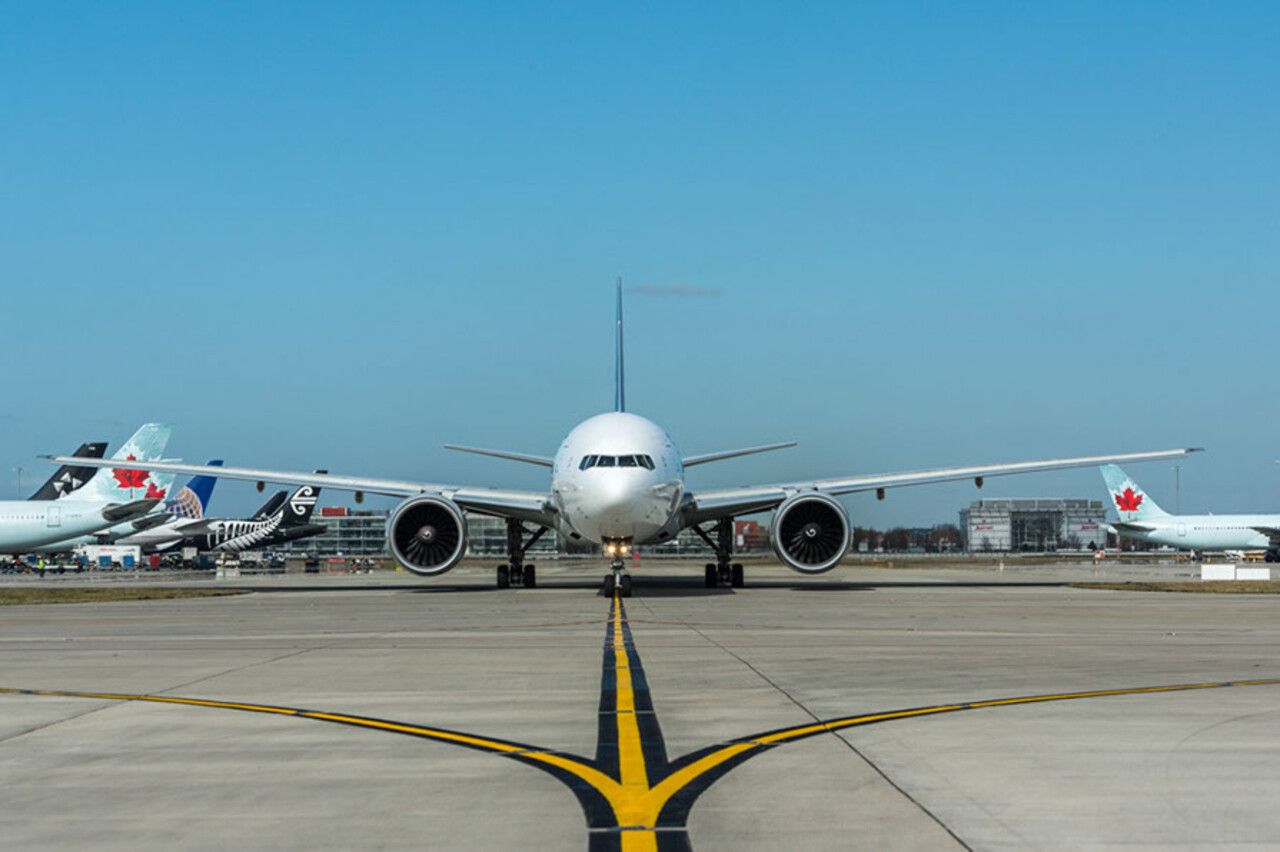BAA Airports report steady growth in February
- Heathrow traffic up 0.5% year on year
- Strong performance on European scheduled services
- All three Scottish airports report growth
- BAA’s six airports recorded 7.1 million passengers in February (down 0.2%)
Heathrow’s traffic grew by 0.5% in February, with good performance on European scheduled services in what is traditionally the quietest month of the year.
Each of the Scottish airports reported increases, with consistently strong performance on European scheduled routes. Glasgow was up by 3.9% in total but by 13.1% on European services. Edinburgh was up 5.0% overall but by 20.7% on European routes. Aberdeen recorded a 4.9% gain.
Across BAA, European scheduled traffic grew most strongly in February (up 1.4%) but there were falls in domestic traffic (down 2.0%) and North Atlantic traffic (down 1.5%). Other long haul routes were up by 0.6% overall, including increases of nearly 10% on Indian services from Heathrow.
Stansted’s traffic was down by 6.3% on last year and Southampton also fell, by 9.5%, as domestic fliers in particular dropped compared to last year.
Together, the company’s six airports handled a total of 7.1 million passengers in February - down marginally (0.2%) on the previous year.
The number of air transport movements was up by 0.8%, with Heathrow 3.4% higher. Stansted was 9.2% lower. Air cargo growth returned to a more normal level after an 18-month trend of post-recession recovery, with a 5.7% overall increase and a 4.7% gain at Heathrow.
Business commentary and outlook
Heathrow’s continued strong performance reflects the strength of the network at Heathrow, measured in terms of the range and frequency of services. The steady growth in demand suggests improving economic circumstances.
Some of Heathrow’s important trading connections, such as those to India, continued to see strong growth. Traffic to the Middle East was only moderately affected by unrest in the region and European services continue to perform well.
Air freight growth slowed in February, but performance remains strong, providing further evidence of a recovery in the manufacturing and export sectors.
In Scotland, the number of passengers using BAA’s three airports is growing, as some services and passengers lost during the economic downturn return and new routes are added. Although February is traditionally the quietest month of the year, Scotland – and Edinburgh in particular – benefited from rugby-related traffic during the Six Nations Championship.
Stansted’s numbers remain down as low-cost carriers continue to move aircraft from the UK to other markets in continental Europe. Nevertheless, we believe that Stansted is well placed to benefit from any uplift in the economy and the return of discretionary travel lost during the recession.
Colin Matthews, chief executive of BAA, said:
“We remain focused on improving the service we offer passengers and airlines at all our airports.
“Heathrow’s strong passenger and freight performance is encouraging for British industry, reflecting steady improvements in the economy and international trade. At our other airports, the slow pace of economic recovery is impacting growth.
“Looking ahead, we remain concerned that increases in Air Passenger Duty planned by the Government will affect the relative competitiveness of UK aviation and damage the UK’s international trading position. Aviation plays an important role in promoting economic growth and the industry should not be treated simply as a source of revenue.”
Further information from: -
Heathrow media relations, 020 8745 7224
BAA traffic summary: February 2011
| Terminal passengers (000s) | Month | % change | Jan to Feb 2011 | % change | Mar 2010 to Feb 2011 | % change |
|---|---|---|---|---|---|---|
| Heathrow | 4,621.7 | 0.5 | 9,674.4 | 2.6 | 65,991.1 | -0.2 |
| Stansted | 1,160.4 | -6.3 | 2,306.2 | -6.0 | 18,416.8 | -7.1 |
| London area total | 5,782.2 | -1.0 | 11,980.6 | 0.8 | 84,408.0 | -1.8 |
| Southampton | 104.0 | -9.5 | 203.6 | -3.0 | 1,728.1 | -3.3 |
| Glasgow | 416.3 | 3.9 | 834.0 | 5.9 | 6,574.4 | -8.0 |
| Edinburgh | 611.1 | 5.0 | 1,194.4 | 9.0 | 8,696.1 | -3.7 |
| Aberdeen | 204.6 | 4.9 | 404.4 | 6.9 | 2,803.2 | -5.4 |
| Scottish total | 1,232.0 | 4.6 | 2,432.8 | 7.6 | 18,073.7 | -5.5 |
| BAA UK total | 7,118.2 | -0.2 | 14,617.0 | 1.8 | 104,209.8 | -2.5 |
| Air transport movements | Month | % change | Jan to Feb 2011 | % change | Mar 2010 to Feb 2011 | % change |
|---|---|---|---|---|---|---|
| Heathrow | 36,243 | 3.4 | 75,592 | 6.2 | 453,623 | -1.2 |
| Stansted | 9,570 | -9.2 | 19,870 | -9.0 | 141,378 | -9.1 |
| London area total | 45,813 | 0.5 | 95,462 | 2.6 | 595,001 | -3.2 |
| Southampton | 2,731 | 0.1 | 5,431 | 3.0 | 40,527 | 0.4 |
| Glasgow | 5,031 | 4.3 | 10,345 | 7.7 | 70,313 | -4.0 |
| Edinburgh | 7,432 | -0.5 | 15,105 | 3.1 | 101,791 | -4.0 |
| Aberdeen | 7,029 | 2.0 | 14,223 | 5.5 | 91,190 | -4.5 |
| Scottish total | 19,492 | 1.6 | 39,673 | 5.1 | 263,294 | -4.2 |
| BAA UK total | 68,036 | 0.8 | 140,566 | 3.3 | 898,822 | -3.3 |
| Cargo (metric tonnes) | Month | % change | Jan to Feb 2011 | % change | Mar 2010 to Feb 2011 | % change |
|---|---|---|---|---|---|---|
| Heathrow | 118,325 | 4.7 | 234,501 | 6.9 | 1,488,264 | 13.3 |
| Stansted | 16,123 | 4.4 | 31,702 | 3.6 | 203,855 | 8.2 |
| London area total | 134,448 | 4.7 | 266,203 | 6.5 | 1,692,119 | 12.6 |
| Southampton | 13 | 82.1 | 20 | 7.0 | 118 | -41.6 |
| Glasgow | 455 | 119.3 | 921 | 126.9 | 4,259 | 49.0 |
| Edinburgh | 2,526 | 62.7 | 3,959 | 28.0 | 21,574 | -7.0 |
| Aberdeen | 541 | 52.5 | 982 | 37.3 | 5,395 | 11.8 |
| Scottish total | 3,523 | 66.5 | 5,862 | 39.1 | 31,228 | 1.1 |
| BAA UK total | 137,984 | 5.7 | 272,085 | 7.1 | 1,723,465 | 12.4 |
Market comparison – UK airports February 2011
| Market | BAA total Feb 2010 (000s) | BAA total Feb 2011 (000s) | % change |
|---|---|---|---|
| UK & Channel Islands | 1,355.7 | 1,328.4 | -2.0 |
| Ireland | 324.2 | 314.4 | -3.0 |
| European scheduled | 2,889.7 | 2,930.3 | 1.4 |
| European charter* | 99.0 | 85.5 | -13.6 |
| North Atlantic | 881.5 | 868.2 | -1.5 |
| Other long haul | 1,581.1 | 1,591.2 | 0.6 |
| Total | 7,131.1 | 7,118.2 | -0.2 |
* Includes North African charter
Note: Origins and destinations are classified according to ultimate origin or destination of aircraft in the case of multi-sector flights.
Note: Figures for the market sectors have been rounded. Totals as per Traffic Summary.



